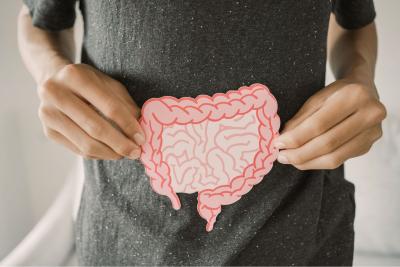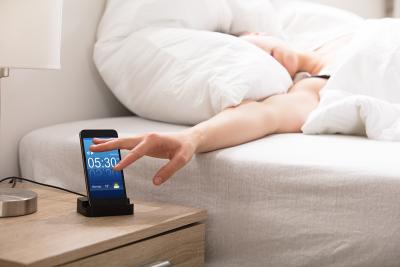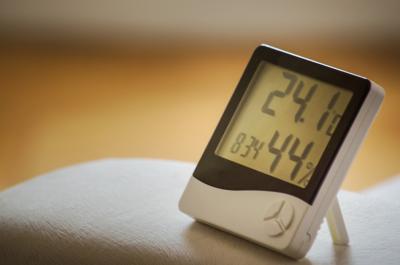Are you partial to a cup of coffee during the afternoon? Have you had a cheeky coffee before bed? On average, we drink around 95 million cups of coffee yearly (that doesn’t include our tea consumption). However, there’s that age-old tale that coffee before bed will stop you from sleeping.
Today, many coffee alternatives boast a vast number of health benefits - some that can even help you sleep. This is why we can share the coffee alternatives, the benefits and if coffee does make you sleepy.
How does caffeine affect your sleep?
During the day, your brain produces a chemical called Adenosine. Essentially, this promotes sleep; as you are awake longer, it builds up and helps you feel sleepy. But caffeine blocks the Adenosine receptors, which keeps you alert and promotes wakefulness. If you have ever struggled with sleeping after a coffee, this could be why.
Additional studies have shown that caffeine can increase the time it takes to sleep when the lights are turned off and reduce the time spent asleep and even the quality of your rest. But that’s not to say it will always affect you. Caffeine is less likely to keep you awake if you are a night owl. Early risers are more likely to suffer from disrupted sleep due to the short time between going to sleep and waking up early.
How much can you drink without impacting your sleep, and when should you drink it?
You should stop consuming caffeine six hours before bedtime
Have you ever had coffee before bed and spent the night staring at the ceiling? Well, there could be a reason. A study discovered that 400mg of caffeine six hours before bed contributed to significant disruptive effects on sleep and stated that you should refrain from drinking caffeine a minimum of six hours before bedtime. So, even stopping your caffeine intake just a few hours before bedtime is not enough.
Avoid caffeine anytime after mid-afternoon - around 2pm to 3pm - to ensure your sleep isn’t affected. But that’s not to say you can’t drink caffeine.

How much caffeine can you drink?
It’s important to remember that you should try not to exceed 300mg of caffeine daily. Excessive caffeine consumption can result in physical health issues such as increased blood pressure, stomach problems, irritability, and even insomnia, leading to chronic sleep deprivation.
A previous study even found that you could exceed the maximum dose for those who enjoy coffee from high-street chains. This research revealed that a medium cappuccino from Costa Coffee contains 325mg of caffeine - more than you should consume daily. So if you enjoy a cup of coffee as a treat, it’s best to check the caffeine before opting for one, especially if you are struggling to sleep.
As we are a nation of tea lovers, you can rest easy knowing that tea typically contains around 6 to 60mg of caffeine - depending on the different types of tea and if you have milk - so you would need to drink about five a day to exceed the daily recommended amount.
So, when should you drink caffeine?
Never drink coffee within the first hour of waking up
We might all tend to reach for the kettle as soon as we wake up. Ideally, however, you want to wait an hour before waking to truly reap the benefits. When we wake, our cortisol levels are at their peak. Cortisol, often associated with stress, enhances your alertness levels. So, drinking caffeine while your cortisol levels are already high can work against this or even help with gaining a tolerance for caffeine.
Six coffee alternatives for you to try at home
However, if you are looking for alternatives to coffee, as you have read about its benefits, we can reveal some of the best options for your morning cup.

1. Turmeric Latte or ‘golden milk’
Did you ever take a cup of hot milk to bed to help you sleep? It might be something that you learnt from your family. Golden milk is hugely popular, with the main ingredient of turmeric giving it that recognisable colour. Turmeric has many health benefits, including antioxidant and anti-inflammatory benefits and an effective antidepressant.
What’s more, turmeric can even help protect against sleep deprivation, meaning you could be more likely to experience improved sleep if you opt for this drink as part of your sleep routine.

2. Chicory root ‘coffee’
An alternative to coffee could be chicory root ‘coffee’, an option for those who want to reduce their caffeine intake but still want to experience a cup of ‘coffee’. This is made from roasted chicory root and boasts a nutty and woody aroma, and is very popular in France, India and New Orleans. It tastes similar to coffee, which lends itself as a placebo if you miss your coffee.
It could improve your digestive health and inflammation; however, there are limited studies on its safety for those who are pregnant or breastfeeding, so always weigh up your options before opting for something new.

3. Matcha Tea
Matcha is another drinking trend that could be significantly better for you than green tea. Matcha powder contains L-theanine, an amino acid found in the tea plant. Matcha boasts five times more L-theanine than green tea, giving the tea a slightly sweet taste. This amino acid is tipped to improve sleep, focus and even learning.
One study revealed that the time spent trying to fall asleep - or sleep latency - reduced due to L-theanine and the number of sleep disturbances. Interestingly, researchers also discovered that the use of sleep medication was reduced due to the amino acid found in matcha. However, matcha does contain caffeine, around 20mg to 44mg, depending on how it is brewed, so it might be best to drink this a few hours before bed to reap the benefits.

4. Green Tea
Green tea is among the most popular coffee and regular tea alternatives. But, have you ever wondered if you can drink it at night? Green tea does contain caffeine, anywhere around 30mg to 40mg. So, if you are sensitive to caffeine, it’s best to test it before including green tea in your sleep routine. Perhaps try it a couple of times and note down its effects.
However, green tea does contain Theanine, which does reduce stress-related hormones and helps your brain to relax. Therefore, there could be some benefits to green tea at night. But, we recommend you opt for green tea a couple of hours before your bedtime to truly enjoy its benefits, as opposed to the effects of caffeine.

5. Peppermint Tea
You may have heard of the benefits of peppermint tea, but one of the main ones is that it is naturally caffeine-free. Peppermint tea has many health benefits, but as a muscle relaxant, it can help with digestive issues and stomach pains. The muscle relaxant can also help ease any headaches or pain you might suffer, which can significantly impact your sleep.
And, without the caffeine, you can opt for a cup of green tea before bed. As peppermint tea is known to aid with relaxation, it could help wind you down before attempting to sleep. However, there haven’t been any clear studies to indicate how it can truly improve your sleep.

6. Ginger Tea
Another naturally caffeine-free tea is ginger tea. Ginger has long been celebrated for its health benefits. It can reduce nausea, is anti-inflammatory and is packed full of antioxidants. Ginger tea can be a great addition to your sleep routine without caffeine. It can help you wind down before bed; additional research suggests that ginger tea can even prolong the time spent asleep.
If you want to continue improving your sleep schedule, check out how melatonin can improve your sleep.












